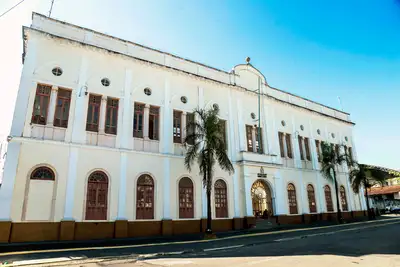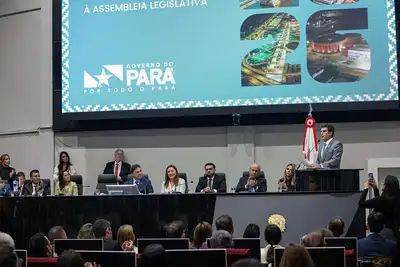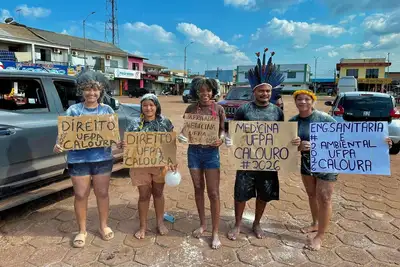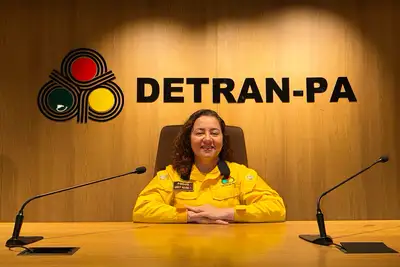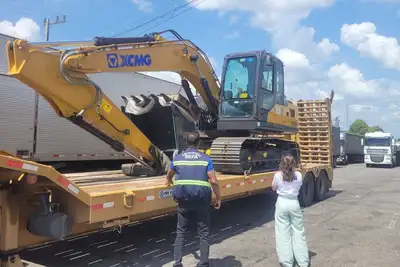Government of Pará delivers housing benefit for the construction of sustainable houses in the islands of Belém
Built with ecological bricks, the homes from the 'Your House COP30 Sustainable' Project are expected to reduce CO₂ emissions in the atmosphere by more than 70 tons

The Government of Pará, through the Housing Company of Pará (Cohab), delivered this Wednesday (1st) the housing benefit "Your House COP30 Sustainable", which will enable the construction of 45 sustainable homes in the island region of Belém. Built with ecological bricks made from açaí seeds, the units will reduce CO₂ emissions in the atmosphere by more than 70 tons.
The president of Cohab, Manoel Pioneiro, highlighted that the initiative combines sustainability with social dignity. "In addition to the ecological aspect, we are bringing dignified housing to the people living in the islands of Belém. This is a work guided by Governor Helder Barbalho and Vice Governor Hana Ghassan. Soon, we will return here to deliver these houses, showing that Cohab combines housing with environmental preservation," said the company manager.

The project will be executed in partnership with the Mixed Cooperative of the Island of Combu (Coopmic). The president of the entity, Mizael Rodrigues, emphasized the transformation for the community, stating that, "for the first time, the public power's gaze goes beyond tourism, offering dignified and sustainable housing to riverside families."
Paulo Cohen, from the Central of Popular Movements, highlighted the appreciation of the riverside population. "This project comes in tune so that the riverside people are looked at with humanity and appreciation," he added.
Sustainability - The use of ecological bricks will allow a reduction of up to 30% in construction time compared to traditional masonry, in addition to providing thermal comfort, greater acoustic insulation, and savings of up to 40% in materials. The brick reduces water consumption (90%), cement (80%), iron (50%), and eliminates the use of wood, decreasing solid waste and greenhouse gas emissions.
Ecological tiles reinforce sustainability, offering greater durability and the use of recycled materials. Biodigesters will also be installed for the treatment of organic waste, generating biogas and biofertilizers.
According to Marco Oliveira, a PhD in Civil Engineering and a professor at IFPA, developer of the ecological açaí brick project, the product's differential lies in the addition of the fruit's seed, most of which is discarded in the environment. "Pará is the largest producer of açaí in the world, and by incorporating the seed into a cementitious matrix with the proposal of capturing CO₂ and the possibility of generating carbon credits, the project becomes innovative. Furthermore, it brings cultural identity and values Amazonian knowledge," he emphasized.

The families benefited will have Technical Assistance in Social Interest Housing (Athis), guaranteed by Federal Law No. 11.888/2008. The program ensures free support from architects, engineers, and social workers during the construction and improvement of the homes.

Resident Ângela Maria Soares, who has been working with açaí collection on the Island of Combu for over 50 years, will be the first beneficiary of the project. Moved, she said, "now I will live in a good house, away from the tide, and I will be able to enjoy the ecological benefits, including making a garden."










